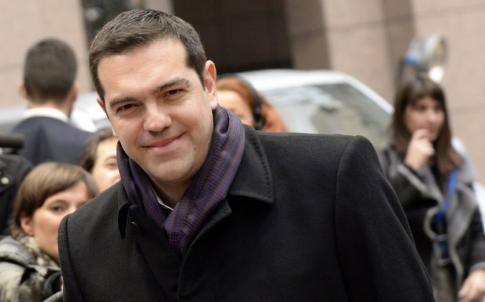Alexis Tsipras pledges to steer Greece back to growth

A Tsipras has pledged to steer Greece back to economic growth in the second half of next year but said he would try to negotiate softer terms with the country’s creditors on energy liberalisation and social policies.
Kerin Hope
Alexis Tsipras has pledged to steer Greece back to economic growth in the second half of next year but said he would try to negotiate softer terms with the country’s creditors on energy liberalisation and social policies.
The Greek premier won an unexpectedly solid victory in a snap election held last month. In his first big policy speech since his election, Mr Tsipras said in parliament on Monday night that debt relief would be a priority for the new Syriza-led government after it legislates a new €4.3bn package of fiscal and structural reforms in the coming weeks.
In contrast with the fiery anti-austerity rhetoric of his first days in office last January, a subdued Mr Tsipras said he was “fully aware the new (bailout) agreement has difficult points . . . VAT increases, tax hikes for farmers and changes in the pension system, all these will create problems”.
But he vowed to “do everything we can to find alternatives or ways of moderating the negative consequences (of reforms)”.
Successfully implementing the latest economic reform package is a condition for opening negotiations with creditors, possibly early next year, on a limited restructuring of Greece’s mountainous debt which is projected to reach 197.7 per cent of national output in 2016. Greece would propose an extension of loan maturities, a reduction of interest rates on debt and a conversion to stable interest rates, the premier said.
The government would also revive a proposal put forward by former finance minister Yanis Varoufakis earlier this year to link debt servicing payments to growth in national output, and at the same time seek an extension of the grace period on debt repayments.
“We need to create sufficient fiscal space to support public investment and rebuild the welfare state,” Mr Tsipras said. Adding to the sober mood in parliament, the finance ministry unveiled a bleak draft budget for 2016, predicting the economy would shrink by 1.3 per cent overall next year on top of a projected 2.3 per cent decline this year. Mr Tsipras did however stress that growth would pick up in the second half of the year.
The draft stuck closely to the targets set in Greece’s €86bn third bailout agreed with creditors in August, including a primary budget surplus — before debt repayments — of 0.5 per cent of national output after a deficit of 0.24 per cent in 2015. Mr Tsipras said Greece aimed to restore liquidity to the financial sector and regain access to the international capital markets “within the next 20 months”.
But he signalled that the government would confront creditors on issues seen as critical to Syriza’s credibility with voters.
The government would oppose the creditors’ plans to allow foreclosures on family homes and purchases of distressed debt and would try to restore collective bargaining agreements rolled back in an earlier bailout.
Facing strong opposition to privatisation within his party, Mr Tsipras pledged to present “a realistic alternative plan to make sure the electricity market is opened up” to avert the planned sale to foreign investors of Greece’s distribution grid.
He also made one populist gesture, declaring that a controversial 23 per cent tax on fees for private education included in the new bailout, from kindergartens to secondary schools, would remain suspended while the finance ministry tries to find an alternative source of funding to plug the gap. /The Financial Times




 del.icio.us
del.icio.us Digg
Digg

Post your comment